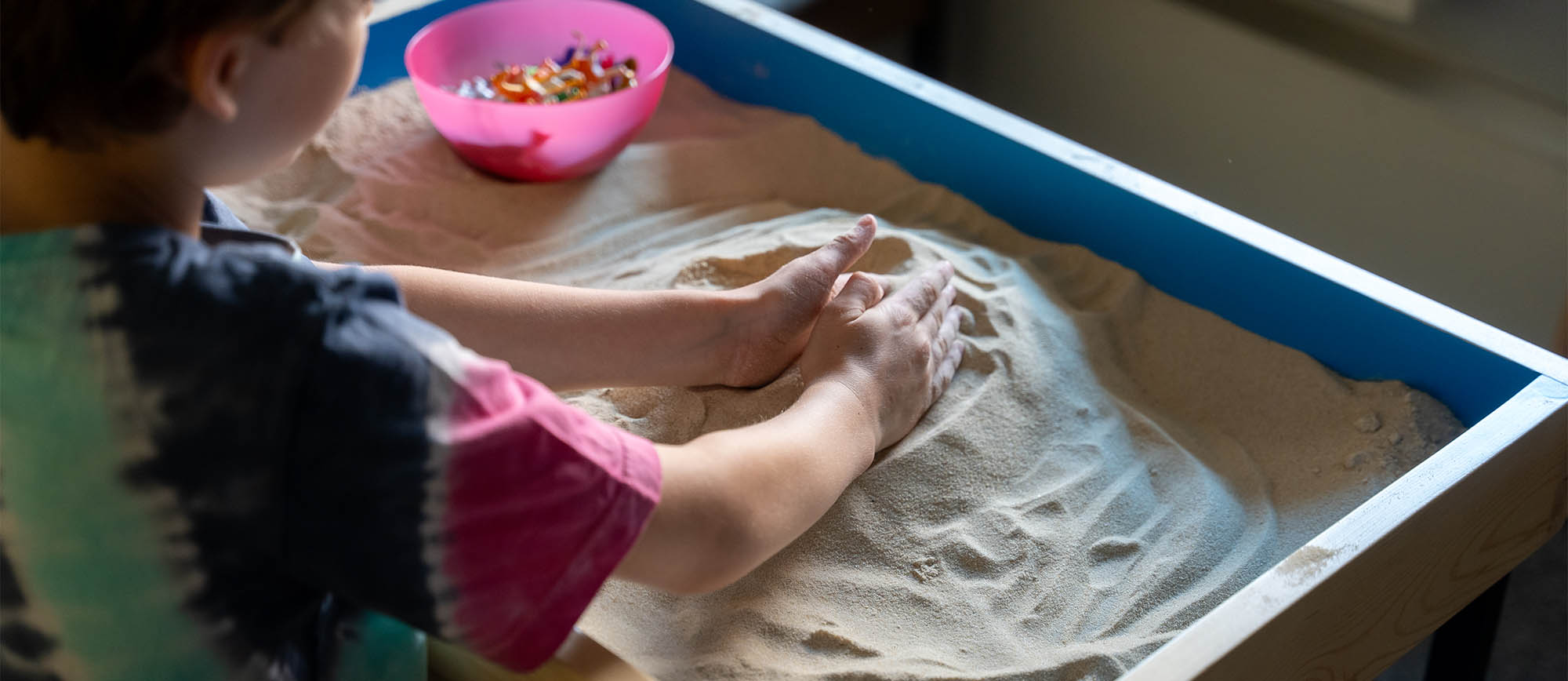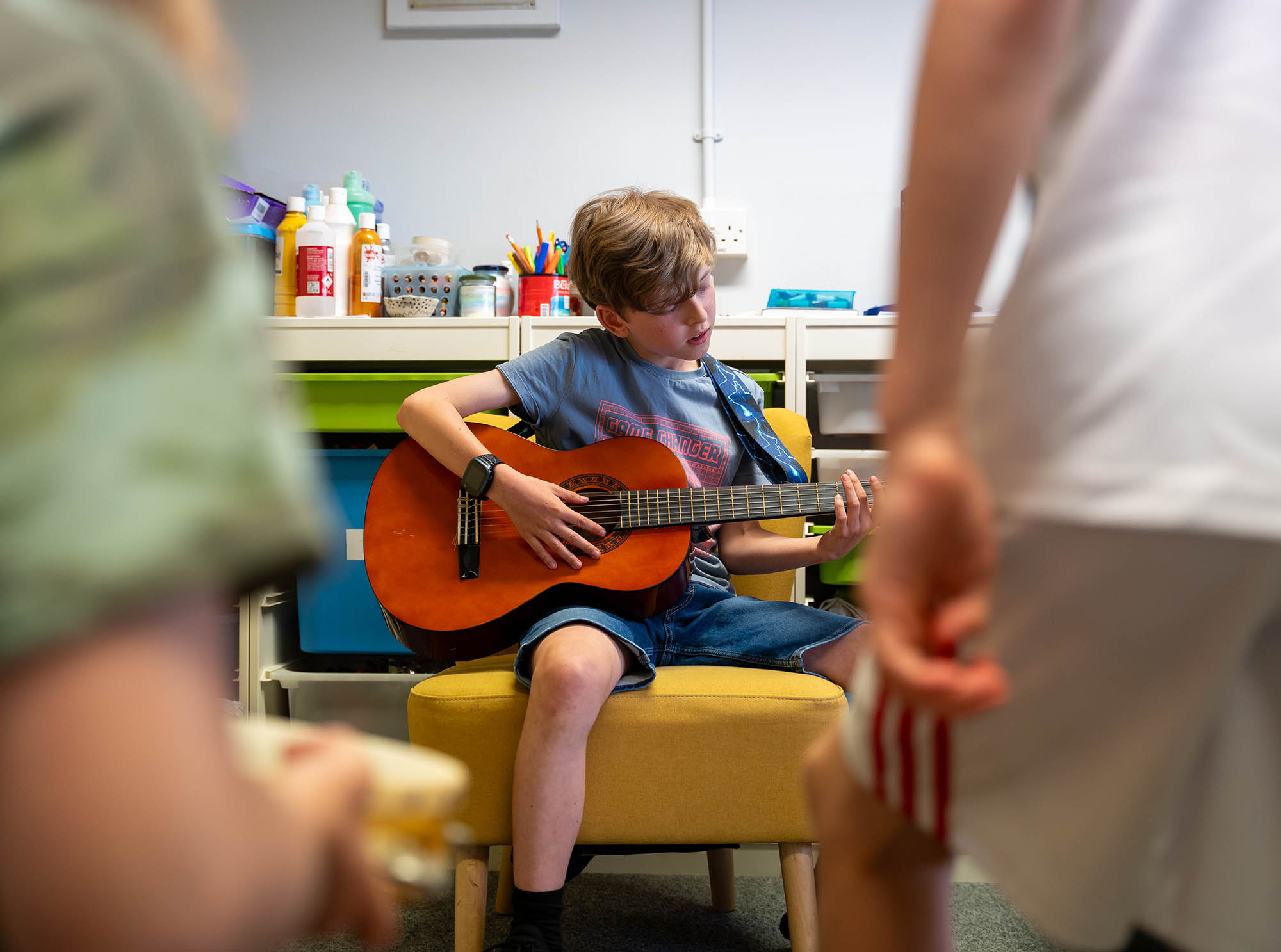
ACEs Main Grants Programme
2025/26 marks the fourth year of The Leathersellers’ strategic giving to help prevent and tackle the consequences of adverse childhood experiences (ACEs).
The ACEs Main Charity Grants Programme provides unrestricted grants of £20,000-£25,000 per annum, for up to four years, to charities and CIOs throughout the UK.
We closed for applications at 5pm on 30th April 2025, and received 570 expressions of interest. We will invite selected charities to make full applications on 18th June 2025.
For more information on who we currently fund, please see the ACEs page of our website.
Closed: 5pm on Wednesday 30 April 2025
Notification: 10am on Wednesday 18th June 2025
£20,000-£25,000 per annum
The eligibility criteria and FAQs that apply to the 2025/26 are below for information purposes.
Income of under £200,000? Read about applying for a small grant here.
Key details
Eligibility criteria
The ACEs Main Charity Grants Programme aims to support UK registered charities or charitable incorporated organisations (CIOs) but not Community Interest Companies (CIC) that:
- expect to have an organisational income of £200,000-£2,000,000
- have at least one year’s published accounts
- have as their core focus, the goal to prevent and/ or reduce the impact of ACEs by providing services to children, young people and/ or adults (our definition of ACEs is outlined in ‘what we fund’ below)
- can demonstrate that the vast majority of people using the service have experienced ACEs/ are supporting people who have experienced ACEs, such as parents and caregivers
- use a trauma-informed approach and evidence-based interventions
- can demonstrate the effectiveness of their approach through evaluation or external research
- can demonstrate that the voice of service users/ experts by experience informs service design and delivery
Please note:
- If your application to the Main Charity Grants Programme in 2025 is declined, you are welcome to submit an expression of interest to this round if you meet the given criteria.
- If you have been awarded a grant previously, you must wait until until the same duration of your grant has passed before you reapply. For example, if you received a four year grant, you will not be eligible to reapply until four years from the date of your final grant payment.
If you are unsure as to your particular circumstance / when you last applied or received funding from us, please contact us.

What we fund
If your charity meets the eligibility criteria, you can apply for an unrestricted grant of between £20,000–£25,000 per year for a period of up to four years.
We have learned that it takes multiple approaches and activities to support people who have experienced ACEs. To date, we have funded a range of provision, including counselling, mentoring, recreational activities, accommodation and community support.
To help us build on the diversity of activities supported through our main charity grants, we are particularly interested in hearing from organisations using the creative arts, nature and sport to prevent and reduce the impact of ACEs. In addition, we are actively seeking applications from eligible organisations operating in Northern Ireland. We recognise that some communities suffer from a greater likelihood of ACEs due to systemic barriers. We welcome applications from charities who support under-represented groups.
Guidance on terms we use
In our criteria and on our form we have used a number of terms that it may be useful to explain further:
Adverse Childhood Experiences (ACEs)
We use this term to recognise traumatic events that occur during childhood that can have a significant impact on a person’s physical, emotional and mental health throughout their life. For the purposes of this grants round, our working definition of ACEs includes the following experiences, as reflected by the NHS:
- abuse – physical, sexual, psychological or emotional
- neglect – physical, sexual, psychological or emotional
- domestic abuse
- substance misuse by a close family member
- mental illness of a close family member
- having a close family member serve time in prison
- parental or caregiver separation or divorce on account of relationship breakdown
Kindly note that for the purposes of this programme, our working definition of ACEs does not include physical illness, disability or bereavement.
Charities working to prevent the occurrence of and/or reduce the impact of ACE’s cover a broad range of activities and areas including child sexual exploitation, county lines, gangs, homelessness, substance misuse and human trafficking. We will consider applications where an organisation can demonstrate that the vast majority of people helped have experienced ACEs/ are supporting people who have experienced ACEs.
Trauma Informed Approach
A trauma-informed approach aims to provide an environment where a person who has experienced trauma feels safe and can develop trust. This means people at every level of an organisation develop an understanding of trauma, its symptoms and its impact, which then influences their work. This reduces the risk of excluding people who have experienced trauma. Many organisations describe it as a cultural shift rather than simply a behavioural one as the approach is integrated into policy, procedures, practice and environment.
Evidence Based
When wishing to support evidence-based work, we are looking for charities that use the following to inform and improve their service at all stages, from design, to delivery, to evaluation:
- use the most current and robust research evidence available
- draw from the expertise of their staff and volunteers, and
- listen and learn from the voices and actions of the adults, children and young people that have benefitted from the service and/ or are experts by experience.
Process
The application process includes an initial expression of interest form, followed by a select number of invited applications, and visits to shortlisted charities. Visits will be conducted in October-November 2025 (Group 1) and January-February 2026 (Group 2) by members of the Leathersellers’ Charity Committee.
Open for expressions of interest: 10am Wednesday 26 March 2025
Deadline to submit expressions of interest: 5pm Wednesday 30 April 2025
Stage 1 Outcome – select charities invited to make a full application: 10am Wednesday 18 June 2025
Deadline for those invited to submit full applications: 5pm Wednesday 16 July 2025
Stage 2 outcome – applicants informed of shortlisting decision: October 2025
Group 1 visits: October-November 2025
Group 1 decisions: December 2025
Group 2 visits: December 2025-January 2026
Group 2 decisions: March 2026
All expressions of interest and invited applications need to be made via an online form. A downloadable version of the expression of interest form will be made available when the round opens.
FAQs
If invited to make a full application, you will be asked to demonstrate how you know the vast majority of the people you support have experienced ACEs/ are supporting people who have experienced ACEs, such as parents and carers. The nature of the service may sufficiently indicate this e.g. counselling for survivors of child abuse. You could also refer to data gathered from the people that you support.
We recognise that in some cases it may be harmful to ask for information on a person’s experience of ACEs. In this case, we ask that you provide contextual evidence that demonstrates a high prevalence of ACEs across the particular client group e.g. if you are supporting adults who are in prison, you could reference a range of public health studies, and underline how this reflects your client group by linking to a case study. Please get in touch if you would like to discuss this.
If you were previously successful in obtaining a charity main grant, then you need to wait for a period equal to the length of that grant before reapplying. For example: if you received a one-year grant you cannot reapply for one year after the date of your final grant payment. If you received multi-year funding for four years you will not be eligible to apply for further funding for four years from the date of your final grant payment.
If you are unsure whether you are eligible to apply, please contact us.
No, we support registered charities working within and for the benefit of communities across the UK.
We regularly find that some applicants do not have ACEs as their core focus or cannot/ do not evidence a high prevalence of ACEs across their service users. Another reason applications do not progress are insufficient safeguarding policies (unsigned, not dated, do not include relevant legislation/ key contacts, or are actually a statement rather than a policy) – further guidance is available at NSPCC’s guidance on writing safeguarding policies and practices.
Unfortunately, we only have a small team and it is not possible for us to provide feedback on expressions of interests. We will provide feedback to any applicants that are invited to make a full application.
No, the Leathersellers’ Foundation does not require a charity to have a particular connection to the Livery or to have previously been funded by us. If you do have a connection, there will be an opportunity to identify that in the application form.
No, if your requested sum is larger than the Committee consider appropriate, they may grant a smaller amount. Your funding request is not an all or nothing consideration and we encourage applicants to ask for what they need. A smaller request does not increase chances of success.
No, the income limit applies to the organisation as a whole, not to the particular area of work you are looking to fund.
In the 2024-25 Livery Year we received 498 expressions of interest, out of which 50 (10%) of organisations were invited to submit a full application. Of the 50 applications, 17 grants were awarded.
The percentage of organisations who submitted an expression of interest that received funding was 3%. Of those submitting full applications, the success rate was 34%.
When you receive confirmation of the success of your application you will be asked to complete an acceptance form. Your grant payment will be received 3-4 weeks after the completion of this form.